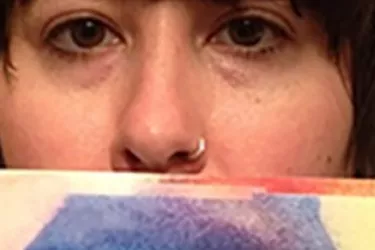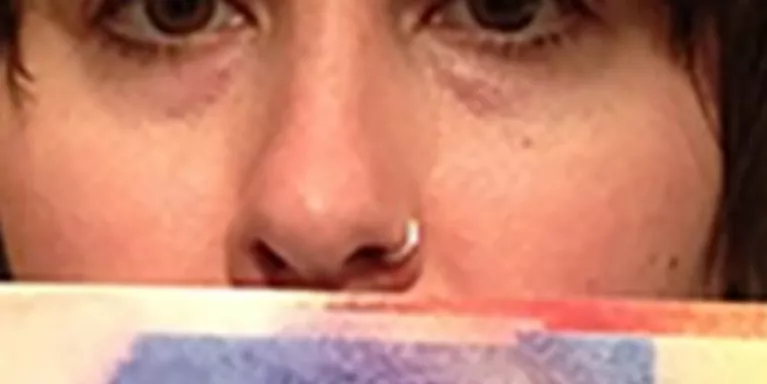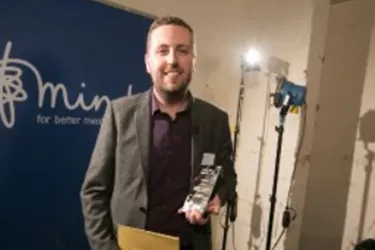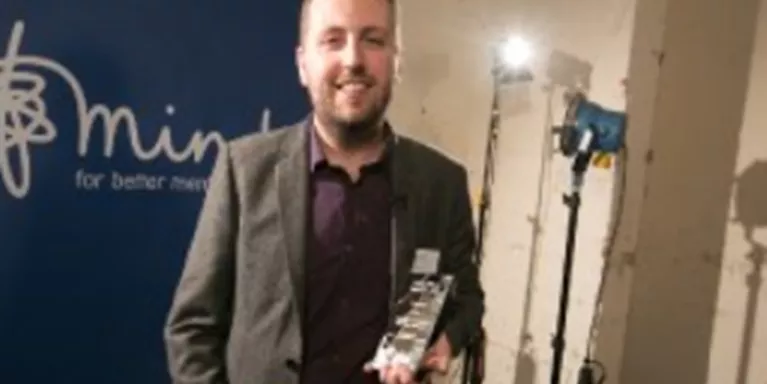Reviewing the VMG Mind Awards documentary category
Today, Amy reviews the VMG Mind Media Awards documentary category. Which programme will you be hoping wins on the night?
I adore mental health documentaries. I think part of the way I deal with my depression is by throwing myself into anything that will develop my knowledge of mental health and show me that there are others out there who face similar challenges. Because of this desire to learn and I am always elated when I watch something that develops my understanding and I can honestly say that all four documentaries on the Mind Media Awards shortlist did just that.
Stacey Solomon: Depression, Teen Mums & Me (BBC Three)
Post Natal Depression (PND) is something I have very little knowledge and I was shocked to hear that 1 in 10 mothers suffer from it let alone 50% of teenage mums. Stacey Solomon: Depression, Teen Mums & Me looks specifically at these young mothers. As someone with depression I am familiar with feeling like I gain no pleasure from anything.
Stacey recounts her own experience of how horrific this feeling is when faced with a situation where you expect and are expected to feel great joy. She says, ‘You don’t look at your baby and think, Oh my God I’m in love. You feel like you’re not human.’ PNDoften seems to stem from psychological issues that are apparent before the birth and Stacey passionately puts forward her belief that and effort should be made to educate people about PND before birth or if possible pregnancy so that mothers can be better prepared.
Stacey discovers that as with most mental health problems, getting the treatment necessary is a postcode lottery and looks into an extreme cases where untreated PND developed into psychosis in order to illustrate the importance that more treatment is provided. Where treatment was available the thing that most intrigued me was psychotherapist Amanda Jones’ insistence of treating mother and baby together in an attempt to save the child from developing future mental health problems. This documentary offered me a look into an illness I knew very little about.
Ruby Wax's Mad Confessions (Channel 4)
As I start a new job this week I am faced with the task of explaining to my new boss that I need to take a long lunch once a week to attend my counselling appointments.
What a perfect time to watch and review Ruby Wax's Mad Confessions! Early on, Ruby reveals that her role as a poster woman for mental health wasn't initially intentional, but personally I think she’s perfect for it.
Ruby is a brilliant example that having a mental health problem doesn’t have to define a person. Having disclosed in this documentary that she presented shows whilst being treated for clinical depression at the Priory, Ruby, along with the three successful professionals who disclose their mental health problems at work, really shows how strong people struggling with their mental health can be.
With a shocking 1 in 5 people losing their jobs when they open up about their mental health it was hearting to see the responses the participants got and I was genuinely moved watching the bravery of Derek who stood before his colleagues with a microphone to explain his absence from work.
This documentary goes to great lengths to explain why mental health needs to be taken seriously and this to me was summed up by Ruby’s own doctor who felt "mental pain [is] a thousand times more anguishing that physical pain." I found this documentary uplifting and just the pep talk I needed to be honest at work (keep your fingers crossed for me!)
Jon Richardson: A Little Bit OCD (Channel 4)
Jon Richardson: A Little Bit OCD is refreshingly a documentary about a mental health problems made by someone who doesn’t have a developed knowledge of the subject.
Jon is known for being "a little bit OCD" but doesn’t know a lot about the condition and has never spoken to someone who suffers from it. So much information on mental health problems focuses on people who are already aware they have an issue and have been diagnosed or people who are in recovery.
It was great to see someone openly going through the process of noting that something felt wrong and trying to figure out what that was. I really identified with Jon’s struggle between wanting to find out if he had a mental health problem and not wanting to have to face up to what that could mean.
A key message in this film is the importance of creating an environment in society where people feel able to talk about their issues. Jon’s revelation to former housemate and fellow comedian Russell Howard that being teased about his compulsion to have the teaspoons in the right place led to Jon spending nights sleeping in his car was really illustrative of this. I really liked that this documentary drew attention to the fact that mental health can affect people to different degrees.
Stephen Fry & Kay Redfield Jamison (Sky Arts)
Stephen Fry & Kay Redfield Jamison is a completely different style of documentary which takes the form of a discussion on bipolar between the leading clinical psychiatrist and Stephen Fry himself.
One thing that really struck me from this discussion were the attempts to emotively express what it feels like to struggle with the condition. Phrases such as "having no home in your own mind" and "a sleeping monster that’s never dead" really made sense to me.
The discussion is very thought provoking and has had me considering it several issues since watching it. Why aren’t mental health mortality rates always viewed in the same light as those from physical conditions? What can be done to tackle the issue that people can be very sick without anyone knowing? Especially in relation to parents being aware of a child or teenager with a mental health problem.
The biggest eye opener for me was when Kay Redfield said there is empirical evidence that bipolar is not a ‘first world’ problem and that 1% of the population around the world struggle with the condition, including in South America, Africa etc. It will be nice to have an answer when that particular issue is thrown my way.
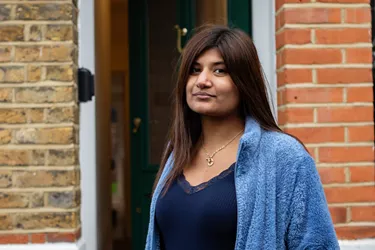

Information and support
When you’re living with a mental health problem, or supporting someone who is, having access to the right information - about a condition, treatment options, or practical issues - is vital. Visit our information pages to find out more.
Share your story with others
Blogs and stories can show that people with mental health problems are cared about, understood and listened to. We can use it to challenge the status quo and change attitudes.














